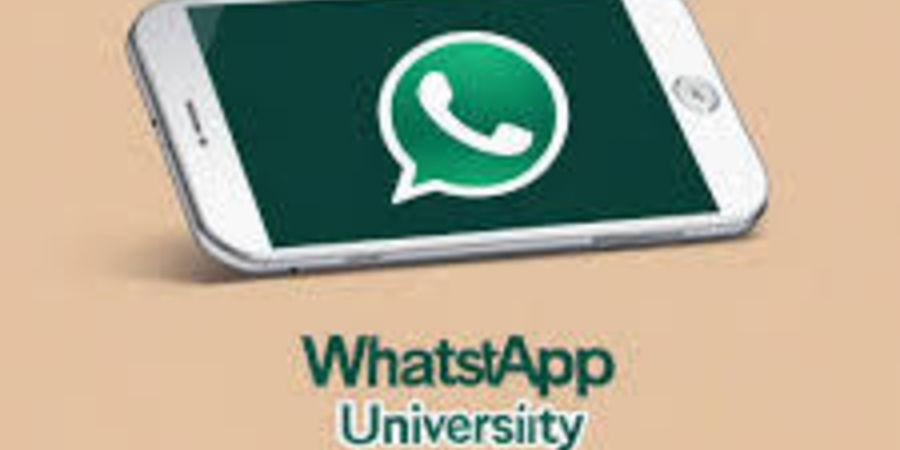The Rise Of Whatsapp University: Information, Misinformation, And The Role Of Social Media In Education
In the digital age, WhatsApp, a popular messaging app, has transformed how people communicate, share information, and stay connected. However, it has also given rise to the informal and satirical concept of “WhatsApp University,” a term used to describe the widespread dissemination of unchecked and often false information through the platform. This phenomenon reflects the double-edged sword of social media as a tool for education and misinformation.
What is WhatsApp University?
“WhatsApp University” is a colloquial term that highlights the app’s role as a hub for sharing information, often with dubious authenticity. While it is not an actual educational institution, it represents a metaphorical space where users consume, share, and believe content without verifying its credibility.
From conspiracy theories and fake news to motivational quotes and health tips, WhatsApp University is known for its ability to shape opinions, influence decisions, and spread both valuable knowledge and harmful misinformation.
The Positive Side
- Information Sharing: WhatsApp is often used to share news, educational content, and resources, making it a valuable tool for spreading awareness about important issues.
- Community Learning: Group chats facilitate discussions on various topics, fostering informal learning and exchange of ideas.
- Accessibility: Its ease of use and widespread adoption make it a powerful medium for reaching people, even in remote areas.
The Dark Side of WhatsApp University
Despite its potential for good, WhatsApp is also a breeding ground for misinformation and propaganda.
- Fake News and Hoaxes: False information spreads rapidly on WhatsApp due to its closed, private nature and the tendency of users to trust messages from friends and family.
- Examples: Misleading medical advice, fabricated historical claims, and doctored images are common.
- Echo Chambers: Like-minded groups amplify certain narratives, reinforcing biases and polarizing opinions.
- Political Propaganda: During elections, WhatsApp is often used to circulate fake news, propaganda, and targeted campaigns to sway voter sentiment.
- Lack of Accountability: The end-to-end encryption feature makes it difficult to track the origin of misinformation, complicating efforts to counter it.
Impact on Society
- Social Divides: Misinformation shared on WhatsApp has fueled communal tensions, created divides, and even led to violence in some cases.
- Public Health: False health advice, such as unverified COVID-19 remedies, has jeopardized public safety.
- Educational Impact: While some educational groups use WhatsApp effectively, the platform’s association with misinformation often undermines its credibility as a learning tool.
Combating the WhatsApp University Phenomenon
- Media Literacy: Encouraging critical thinking and teaching users to verify information through trusted sources can reduce the spread of false content.
- Fact-Checking Initiatives: Organizations like Alt News and Boom FactCheck actively debunk viral misinformation on WhatsApp.
- Platform Accountability: WhatsApp has implemented features like message forwarding limits, fact-checking partnerships, and a “forwarded” label to curb misinformation.
- Regulatory Measures: Governments and policymakers are exploring ways to address the misuse of social media platforms without infringing on privacy and freedom of expression.
Conclusion
WhatsApp University is a testament to the power and perils of digital communication. While the platform has democratized access to information and facilitated community learning, its role in spreading misinformation cannot be ignored. Addressing this phenomenon requires a collaborative effort involving users, educators, technology platforms, and policymakers. By fostering digital literacy and accountability, society can harness the potential of WhatsApp for genuine education while minimizing its misuse.




